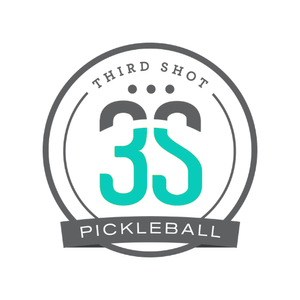Pickleball is a game and games should be fun. But what if pickleball was more than that? And I’m not talking about those people — including yours truly — for whom pickleball is a means to earn a living. I’m talking about regular players for whom pickleball literally changed their life — maybe even saved it.
Several years ago, I was running pickleball clinics on the east coast of Canada. I was reading a short newspaper clipping posted on a message board at the club. It was about the growth of pickleball in the region and some of the key people that were contributing to the community. Seemingly out of nowhere, a woman, let’s call her Jean, walked up to me and said “That’s a really good article. It’s amazing what has happened here. Actually, pickleball saved my life.”.
Her statement caught me off guard. I turned toward her and obviously looked confused. She told me that she and her husband (both in their early 70s) had less than a year ago moved to this new town where I was running my clinics. They didn’t have any friends or previous connections there, but thought it would be a pretty place to live. Shortly after their arrival, he died unexpectedly. Jean told me that she was devastated and had spiralled significantly. She shared that her isolation, sadness and depression even caused her to consider ending her own life. Jean then told me that someone she knew casually — a neighbour I think — essentially dragged her to her usual pickleball session and that from that moment forward, everything changed.
Almost immediately Jean found a group of fun, supportive people who she really enjoyed spending time with. She started playing a few times a week and, as many of us have experienced, this ballooned into playing daily — sometimes even twice a day when her body could handle it. Jean told me that her thoughts changed instantly, like a switch had been flipped, and she was spending much less time being sad and much more time thinking about pickleball.
As many of us have experienced, some of these ‘pickleball friends’ became ‘real’ friends. Jean was meeting people for lunch after they played. She got invited to join book and wine clubs. She would host people for dinners and even go away on weekend retreats. I think about how my own mother had a similar experience — allowing pickleball to be a catalyst for her to find and build community in a new and unfamiliar place.
Jean’s life had undergone a complete transformation in a matter of weeks — pickleball, as she said, saved it.
I like being involved in the pickleball industry. I like seeing it grow and move in unexpected directions. I like that I can earn a living from it and that I’m learning new things along the way. But when I hear stories like Jean’s, it helps me to see a different side of pickleball that I know exists but I’m often inattentive to. Pickleball has this uncanny ability to form fast communities. We see examples of this all the time from people who meet new vacation buddies on the pickleball court, who fall in love during a round-robin, who let strangers stay with them merely because they travel with a paddle.
Of course, there are some less than friendly people in the pickleball world, but every community has that. By and large pickleball is chock full of caring and enthusiastic humans who are more than happy to bring newcomers into the fold. That is unique, I think. And that is special. So special, perhaps, that it can save a person’s life.




